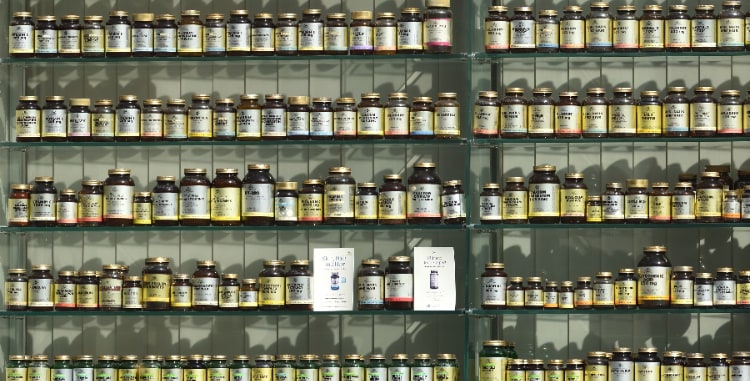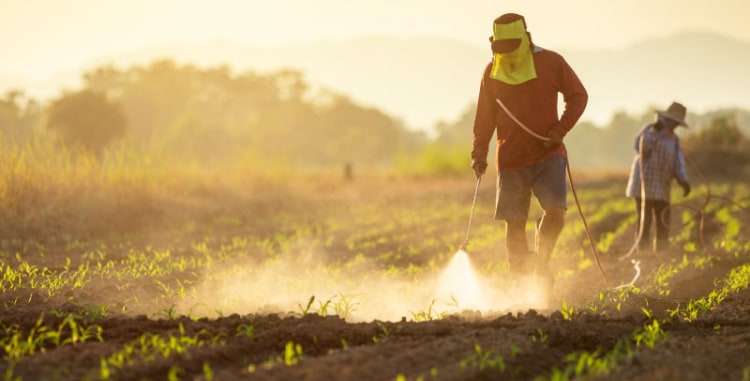
Do you spend a couple minutes every morning popping pills? I’m not talking about dangerous, addictive ones. I’m talking about supplements. Lots of people take health supplements in the hopes of living longer and avoiding chronic disease like cancer.
But according to an article on the Consumer Reports website, if you’re popping supplements like candy, you might not only be wasting your money … you may actually also be harming your health.
The Consumer Reports article requires a subscription (a great website). So for your benefit, I’ll give you the brief skinny on what Consumer Reports found out about why supplements just might be not what the doctor ordered for living a long, healthy life…..
The Verdict Is In: Whole Food Is Better Than Supplements
Nothing shocking about this headline, right? You don’t need to be a scientist or certified nutritional therapist (like me) to know that eating whole foods is better for living a long, healthy life than relying on supplements.
Nonetheless, that’s the conclusion of the Consumer Reports article. What is shocking, however, from the study, involving 27,000 people is this: 90 percent of people don’t eat the daily recommended 1½ to 2 cups of fruit and 2 to 3 cups of vegetables, according to the Centers for Disease Control and Prevention.
Seriously? 90 percent? That’s absurdly high.

Good thing I created an Organic Green Drink that makes it ridiculously easy to get your daily dose of veggies and then some.
So if 90% of the 27,000 people in the survey weren’t getting the recommended servings of fruits and veggies, could supplements be the answer for making up for the nutrient shortfall?
Nope. Not according to a source from the Center for Responsible Nutrition (CRN).

Say No To (Most) Isolated Nutrients
Here’s another reason to not rely on supplements to keep you healthy: isolated nutrients like vitamin C pills aren’t regulated by the Food and Drug Administration (FDA). Companies can therefore get away with having heavy metals in protein powder.
Some supplements may contain far less of the isolated nutrient that what the package says.
If you can afford it, get a subscription to Consumer Reports or ConsumerLab.com. These two organizations are independent and test for purity and accuracy in supplements.
And if that’s not enough reason to ditch popping isolated nutrient supplements, let me give you a more compelling one.
Taking certain supplements may give you cancer. It’s true. It has been reported that if you take 1,000 mg per day of calcium in pill form, you might have a substantially increased risk of cancer. But when you eat foods rich in calcium your cancer risk doesn’t increase. Speaking of which, just one cup of kale supplies you with 100 mg of calcium. There’s 2 different types of kale in my Organic Green Drink.

Are Supplements Necessary?
Sometimes they are. Especially if you’re trying to get pregnant or are already with child. Folic acid and vitamin D are critical for fetal development.
Vitamin D is also good if you’re stuck inside all day and can’t expose some of your skin to sunlight for at least 10 minutes.
And if you’re vegan, you might want to take a vitamin B12 supplement as well as algal oil, a vegan-friendly substitute for fish oil.
Speaking of fish oil, if you’re eating wild salmon a couple times a week along with plant sources of omega-3 fatty acids (walnuts) you really don’t a fish oil supplement.
(Want to know how to cook salmon to perfection? Check out my recipes in my cookbook Making Cleansing Easier.)
Now, I’m not suggesting supplements don’t have their place. I believe certain supplements, especially ones that are time-tested such as traditional Chinese medicine formulas or Ayurvedic herbs can balance your system and make you healthier.
But eating whole, real food is always better than relying on popping pills for optimal health. Of course, you really didn’t need me to tell you that, did you? (Sometimes, though, the best health advice is hearing something you already know; the repeated message helps reinforce it until finally it sticks.
And I hope that if you’re not getting your daily dose of veggies, especially the healthiest kind–green, leafy ones–you’ll give my Organic Green Drink a try.
Chef V delivers Low Sugar Green Drinks nationwide. It’s the easiest way to get your daily dose of whole-food nutrients.
To your health,
Chef V








